Following our analysis of the pandemic effect on product recalls in 2020, we were interested to see how 2021 is shaping up, and have now compiled the latest food recall numbers up to the end of May 2021. We have also extrapolated these numbers to year end to see how it looks compared to previous years, should the trend of the first 5 months continue. Read on below to see what is happening in the US, UK, EU and Australia and click on the graphs to see them in more detail…
US FDA
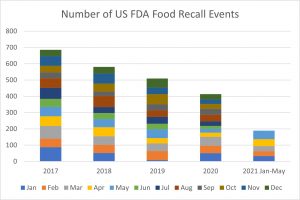
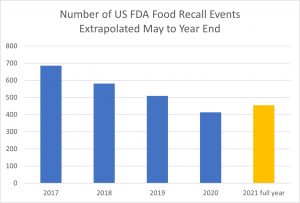
The US FDA recall event numbers seem to be heading back closer to “normal” levels; although probably still below previous years outside the pandemic.
USDA / FSIS
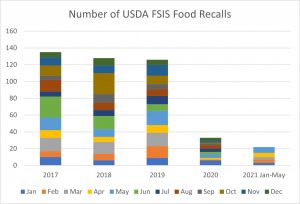
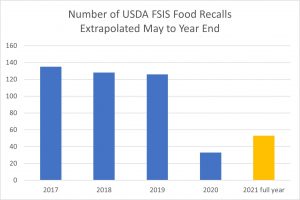
For USDA / FSIS, we regularly reported a significant “pandemic effect” with number of recalls being very low throughout 2020. It looks like recall numbers are increasing in 2021, but still nowhere near back to “normal”. These include Class I, II and III recalls.
UK FSA
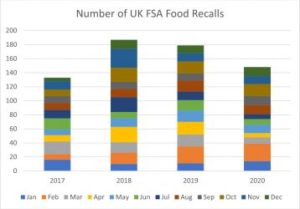
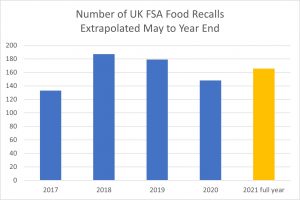
UK FSA recall alerts (including allergy and food alerts) show a similar trend to the US FDA. The recall numbers are greater than 2020, and getting closer to the 2019 numbers.
EU RASFF
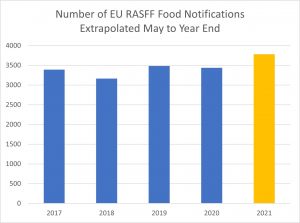
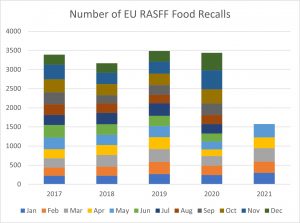
The EU is the only region assessed where there has been an increase in RASFF notifications (recalls and other actions) in 2021 compared with all the previous four years.
Product Safety Australia
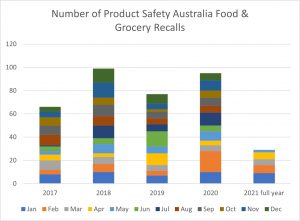
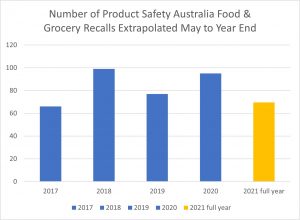
Interestingly food recalls reported by Product Safety Australia barely showed any “pandemic effect”. That is where the number of recalls reported in 2020 was lower than previous years. That trend was seen in the US, UK and Europe reducing the recall numbers. In fact Australia ended 2020 with more food and grocery recalls than 2019. In 2021, it looks like the total numbers will be lower than any of the past three years and may end up with a number of recalls similar to 2017 when there were 66. Although as the total recall numbers are relatively low, this can easily change if there is a spate of recalls later in the year.
Reasons why there may be fewer recalls during the pandemic:
- Increased focus on hygiene in factories and society in general
- More difficult to investigate supply chain issues and to decide on recall action
- Consumers less likely to complain and food may not be identified as cause of illness
- Enforcement authorities have reduced inspection and monitoring capability
- A reduction in identifying food safety hazards through testing as laboratory capacity is reduced or diverted to COVID-19 testing
- A delay in reporting food-borne outbreaks
